Memory Cards & Memory Card Readers
Discover SD cards and microSD™ cards to capture content, grow your game library.
What is a memory card?
A memory card is flash-based storage that typically comes in a slim, lightweight form. You can insert a memory card into a built-in slot on a device, via a memory card reader, microSD card reader, or with a similar adapter.
Memory cards save data on a wide range of portable devices, such as smartphones, cameras, and handheld gaming consoles — some even work with Chromebooks. Their simplicity makes them a prime choice for storage while on the move.
Memory Card vs SD card vs microSD card
“Memory card” covers different types of flexible, portable data storage. One of the most popular card types, SD — or secure digital — memory cards feature a high rate of data transfer and low battery consumption.
microSD memory cards are simply smaller versions of SD memory cards, built specifically for compact devices like phones or Nintendo™ Switch™, which have limited built-in storage capacity.
How much can a memory card store?
SD memory cards and microSD memory cards come in multiple storage capacities to meet virtually every need, from saving family photos on your smartphone to shooting high-quality video with a GoPro™.
While 64GB1 and 128GB memory cards are popular choices for everyday uses, flash storage capacity can reach 1TB in a single card for more intensive requirements, such as 4K and 8K UHD video recording.
Memory Cards for Pro-Level Pursuits
Blazing-fast transfer speeds for your largest files and top-of-the-line performance for your 4K, 5K, and 8K advanced and pro-video cameras.3
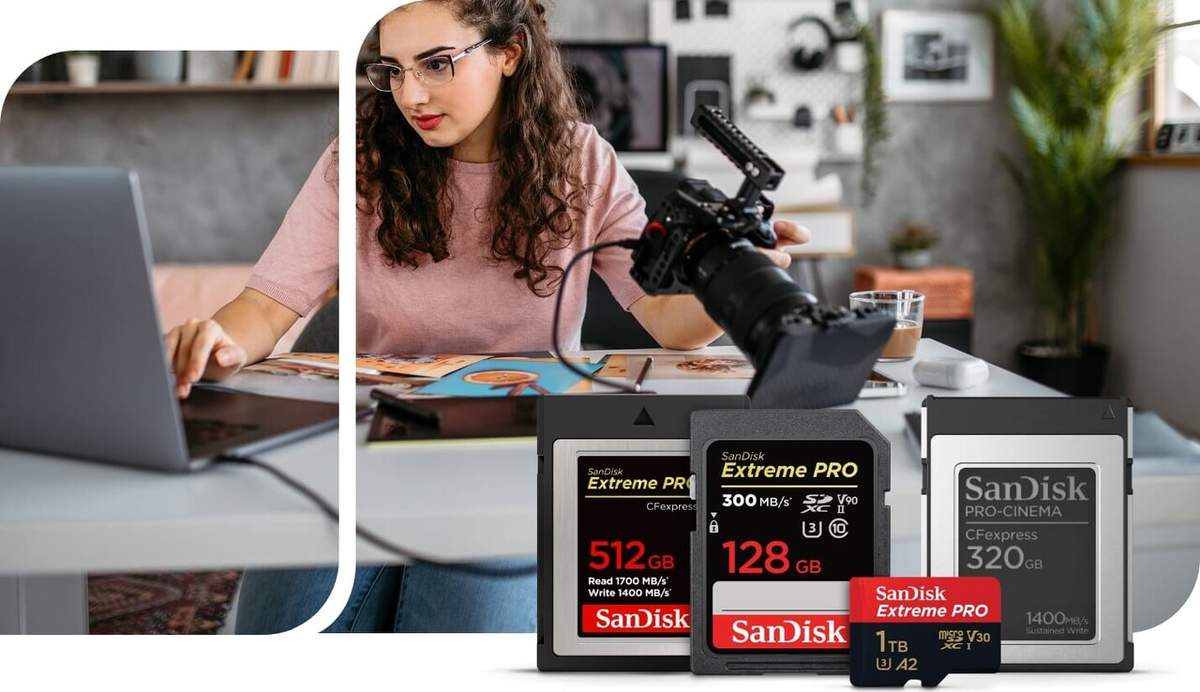
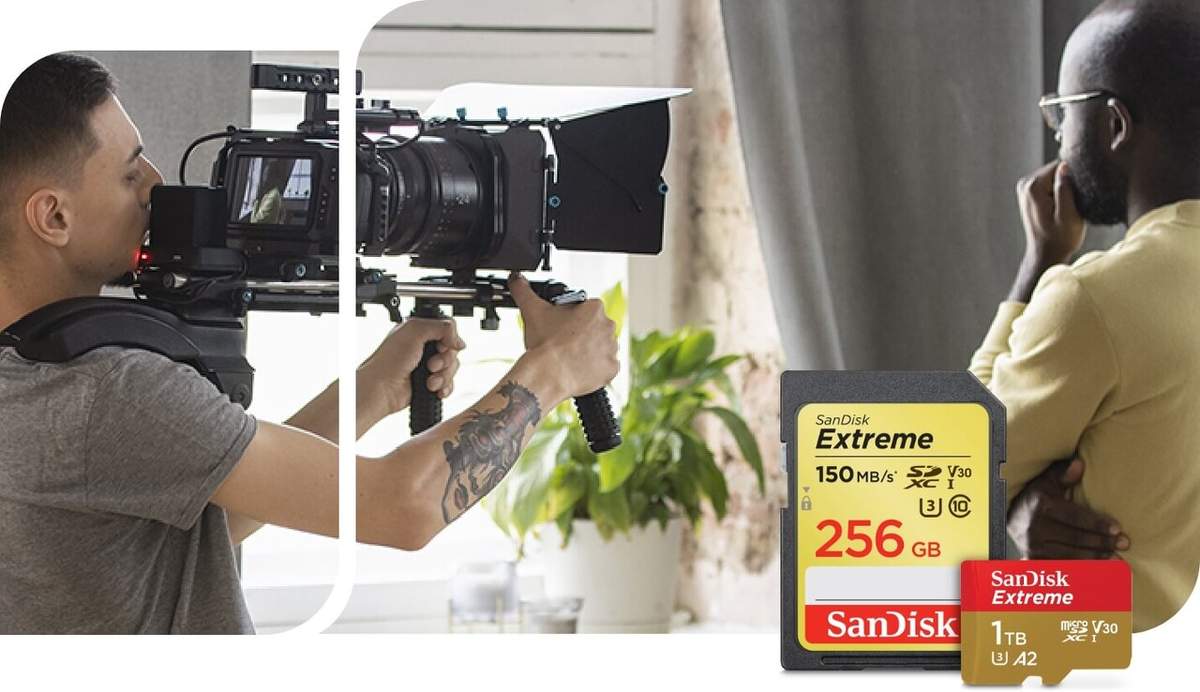
Memory Cards for Serious Performance
Turn to SanDisk Extreme for serious, pro-grade use with DSLRs, action cameras, and more.
Memory Cards for Everyday Use
SanDisk Ultra memory cards offer outstanding performance for your everyday needs, from compact cameras to smartphones and video recording.
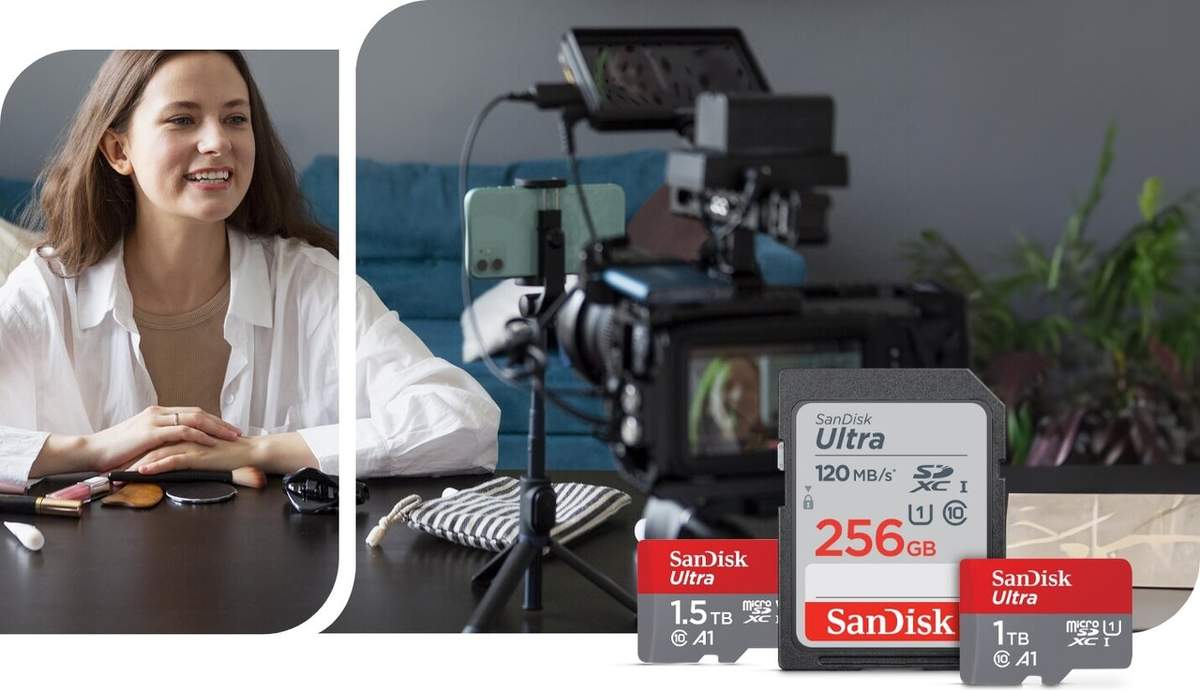

Memory Cards for Gaming
Level up your game library with microSD cards for Nintendo Switch, smartphone gaming, and handheld consoles.
Specialty Memory Cards
Push performance further and deliver more capacity to specialty devices like surveillance cameras, trail cams, dash cams, and drones.
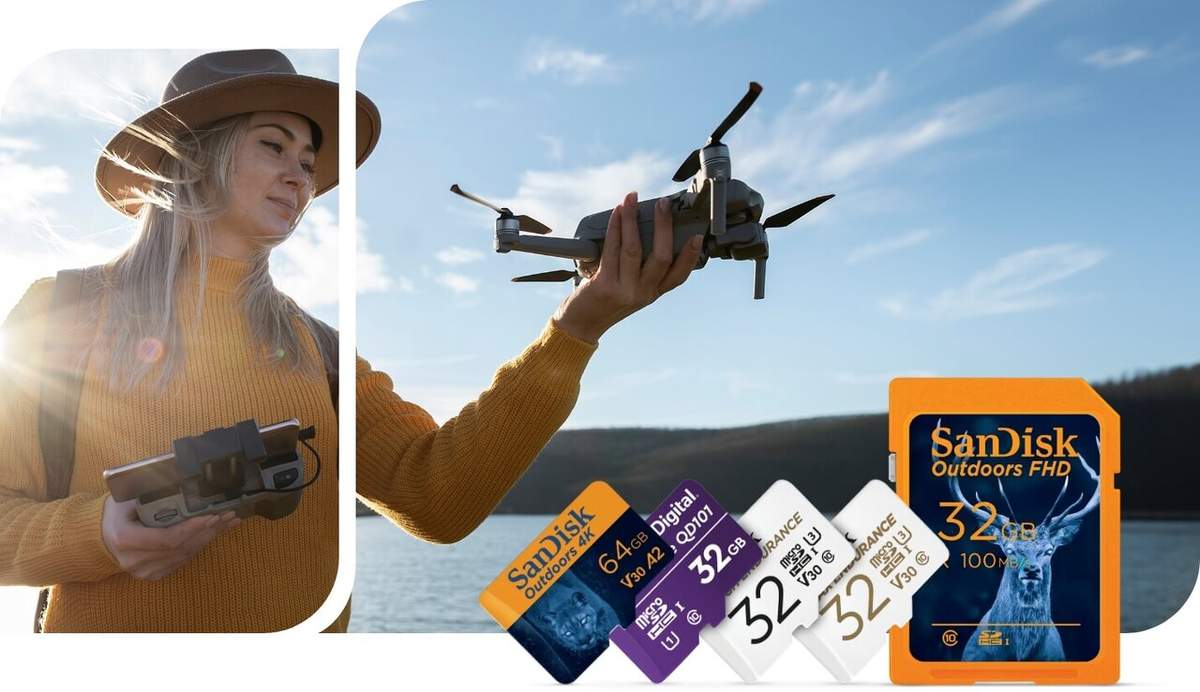
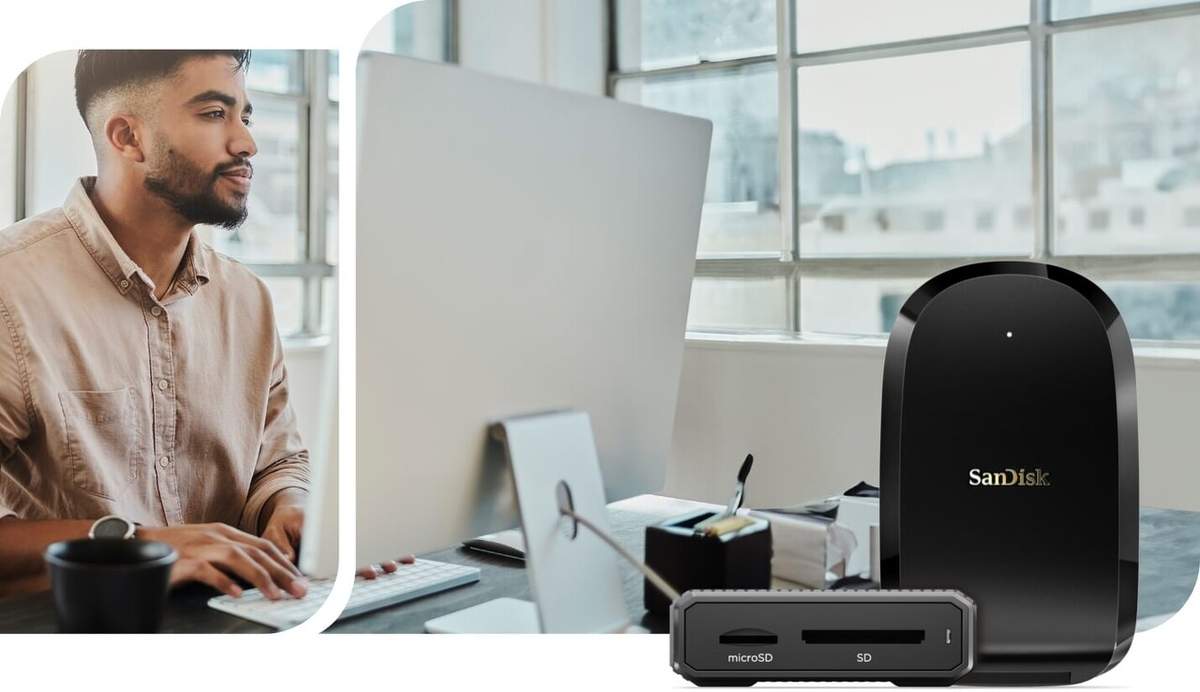
Memory Card Readers for Creative Workflow
Discover SD cards and microSD™ cards to capture content and grow your game library.
Proof of Rugged Reliability
Our memory cards are tested under harsh conditions. SanDisk SD and microSD (including SDHC™, SDXC™, microSDHC™ and microSDXC™) memory cards are capable of withstanding some or all of the following conditions.2

Water Proof
Tested to withstand up to 72 hours in
1m salt or fresh water; IEC 529 IPX7;
product must be clean and dry before
use.

Temperature Proof
Capable of withstanding operating
temperatures from -13ºF (-25ºC) or
185ºF (85ºC) for 100 cycles (equivalent
to 28 hours).

Shock and Vibration Proof
Capable of withstanding up to 500G of
shock.

X-ray Proof
Immune to airport X-rays.

Magnet Proof
Capable of withstanding up to 5000
Gauss of static magnetic field.

Impact Proof
Able to withstand drops up to
5 meters (16.4 feet).
How to read a microSD card
Capacity
The amount of storage available to hold your contentRated A2
For faster app loading and performanceVideo Speed Class
Supports multiple stream recording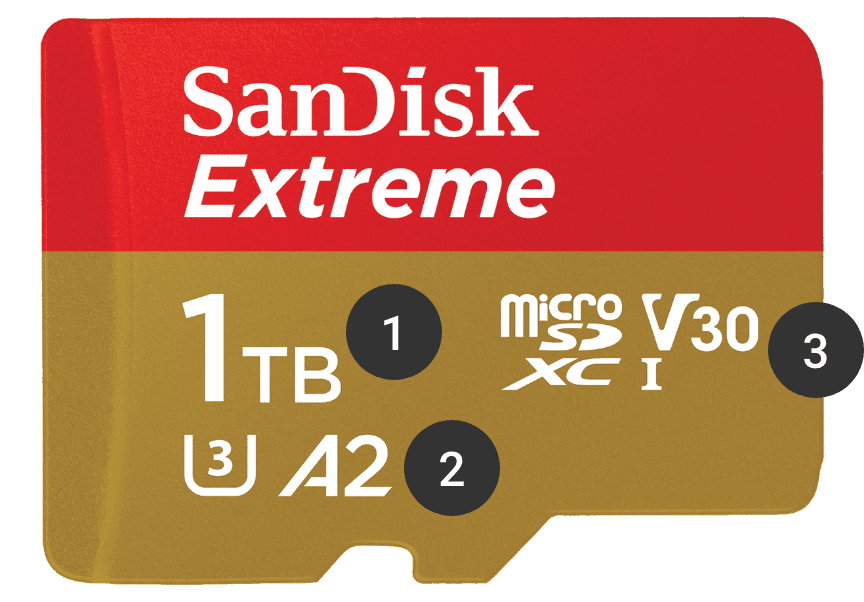
Memory Card Best Practices
Always follow these tips to ensure your data remains safe.
Featured Products
Disclosures
1. 1GB=1,000,000,000 bytes. 1TB=1,000,000,000,000 bytes. Actual user storage less.
2. Please refer to the logos on each product’s package for the conditions each line of product is capable of withstanding. SanDisk Manufacturer’s (Limited) Warranty terms and conditions apply.
3. Compatible device required. Full HD video (1920 x 1080), 4K UHD (3840 x 2160), 4K (4096x2160), 8K (7680x4320) and 3D video support may vary based upon host device, file attributes and other factors. See SanDisk Video Knowledge Base and product details for full information
Nintendo Switch is a trademark of Nintendo. © 2022 Nintendo.
